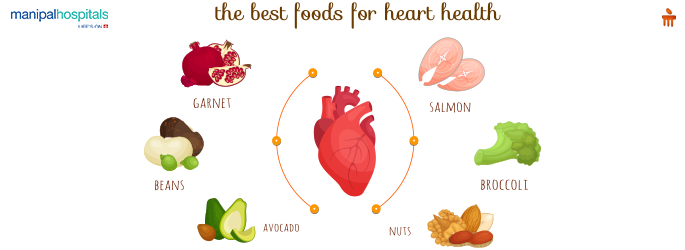The connection between nutrition and health is undeniable. A balanced diet not only fuels the body but also plays a vital role in preventing chronic illnesses and promoting overall wellness. Common diseases like heart conditions, diabetes, obesity, and certain cancers are often linked to unhealthy eating habits. Incorporating nutrient-dense foods and eliminating processed options can significantly reduce the risk of these ailments. Understanding how specific foods impact your body is crucial for long-term health.
In this comprehensive guide, we’ll explore how dietary choices contribute to disease prevention and share practical strategies for building a healthier lifestyle through nutrition.
The Impact of Food on Health
Building a Strong Foundation
What you eat directly influences your immune system, energy levels, and organ function. Nutrient-rich foods, such as fruits, vegetables, lean proteins, and whole grains, provide the body with essential vitamins, minerals, and antioxidants. These components help fight inflammation, regulate bodily processes, and repair cellular damage, reducing susceptibility to illnesses.
Reducing Chronic Disease Risks
A poor diet, high in saturated fats, sugars, and refined carbohydrates, can lead to conditions like type 2 diabetes, hypertension, and cardiovascular disease. Conversely, a diet rich in healthy fats, fiber, and plant-based foods supports heart health and stable blood sugar levels. Omega-3 fatty acids found in fish, nuts, and seeds reduce inflammation and promote cardiovascular well-being.
Balancing Gut Health

Gut health is central to overall immunity. Foods rich in probiotics, such as yogurt and fermented vegetables, maintain a healthy balance of gut bacteria. Paired with prebiotics from fiber-rich foods like bananas and oats, they strengthen the digestive system and improve nutrient absorption.
Dietary Strategies for Disease Prevention
Heart Health and Nutrition
Cardiovascular diseases are among the leading causes of death worldwide. A heart-healthy diet focuses on:

- Whole Grains: Rich in fiber, they lower cholesterol and support vascular health.
- Healthy Fats: Sources like avocados, olive oil, and salmon reduce bad cholesterol levels.
- Reduced Sodium Intake: Limiting salt prevents high blood pressure and fluid retention.
Replacing processed snacks with nuts or fresh fruits can also promote better heart function.
Managing Blood Sugar Levels

For those at risk of or managing diabetes, diet plays a crucial role in controlling glucose levels. Key practices include:
- Low-Glycemic Foods: Choose options like legumes, non-starchy vegetables, and whole grains to prevent blood sugar spikes.
- Portion Control: Balancing carbohydrate intake with protein and healthy fats helps maintain steady energy levels.
- Avoiding Sugary Beverages: Opt for water, herbal teas, or low-calorie drinks instead.
Cancer-Fighting Foods

Certain foods are known for their cancer-preventive properties, including:
- Cruciferous Vegetables: Broccoli, cauliflower, and kale contain compounds that fight carcinogens.
- Antioxidant-Rich Fruits: Berries, oranges, and cherries neutralize free radicals, protecting cells from damage.
- Plant-Based Proteins: Beans, lentils, and tofu are linked to lower cancer risks compared to red meats.
Maintaining a predominantly plant-based diet can significantly reduce cancer-related risks.
Overcoming Challenges to Healthy Eating
Cost and Accessibility
Eating nutritious foods doesn’t have to break the bank. Seasonal produce, frozen vegetables, and bulk whole grains are budget-friendly options. Planning meals and avoiding food waste can also maximize savings.
Busy Lifestyles
Time constraints often lead to reliance on fast food or processed meals. Preparing meals in advance, using slow cookers, or opting for simple recipes can help integrate healthy eating into a hectic schedule.
Breaking Unhealthy Habits
Transitioning from a diet high in processed foods can be challenging. Start small by replacing sugary snacks with fruits or whole-grain options. Gradually reducing salt and sugar intake retrains taste buds and makes healthier choices more appealing.
Long-Term Benefits of a Healthy Diet
Adopting a nutritious eating plan offers benefits beyond disease prevention. It improves mental clarity, supports weight management, enhances energy levels, and boosts overall quality of life. Over time, these positive changes can lead to a lower healthcare burden and greater independence in daily activities.

A balanced diet also sets the stage for healthier aging, reducing the risks of age-related conditions like osteoporosis and cognitive decline. Encouraging family and friends to join in on the journey makes it easier to maintain these habits while creating a supportive environment.
Share Your Health Journey
The role of diet in preventing common diseases cannot be overstated. By making informed food choices and adopting sustainable eating habits, you can take charge of your health and minimize the risk of chronic illnesses.
How has improving your diet positively impacted your life? Share your experiences in the comments below! For more tips on healthy eating and lifestyle strategies, explore our website. Don’t forget to subscribe to our newsletter for expert insights and the latest wellness trends. Together, let’s work toward a healthier future!

Leave a Reply